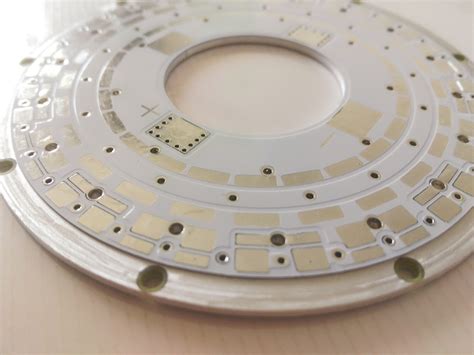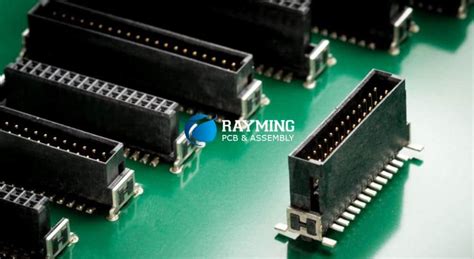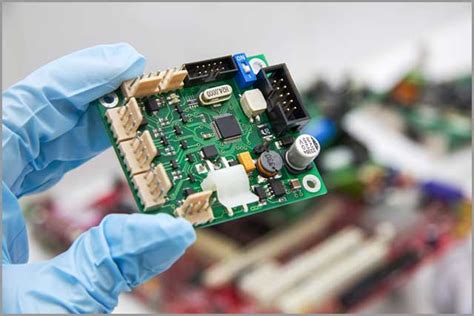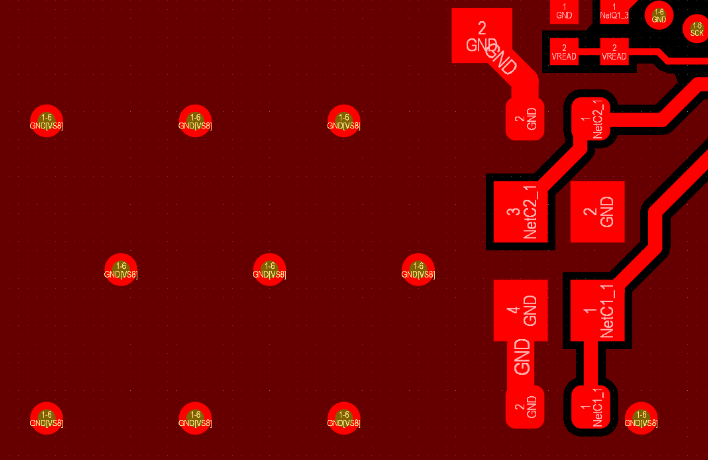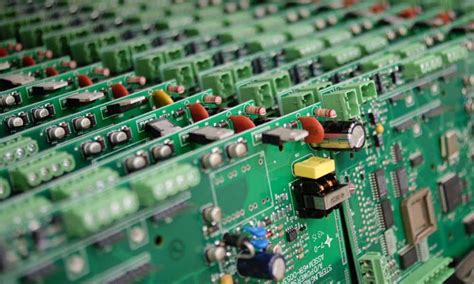Streamlining Innovation: The Rise of Turnkey PCB Electronics
Key Takeaways
In summary, turnkey PCB electronics has significantly simplified and accelerated the innovation process by merging design, fabrication, and assembly services into a unified package. These turnkey solutions not only minimize the complexities involved in PCB assembly (PCBA) but also slash the time-to-market, which is crucial in the competitive electronics industry. By offering high-quality and reliable products, businesses can now focus more on their core innovations rather than getting bogged down by the intricacies of PCB design and manufacturing processes. These advantages extend to reducing overhead costs and ensuring that projects adhere to stringent quality standards, thereby fostering continuous technological progress.
The Evolution of PCB Electronics: From Traditional to Turnkey Solutions
The evolution of PCB electronics has seen a remarkable shift from traditional methods to turnkey solutions. Originally, pcb assembly involved multiple stages—design, fabrication, and assembly—each managed separately. This segmented approach often led to increased complexities, longer development cycles, and higher costs. However, with the advent of turnkey PCB electronics, these processes are now integrated into a single, streamlined package. Turnkey solutions encompass everything from initial design to final assembly, significantly reducing the time-to-market and enhancing overall reliability. This holistic approach enables businesses to concentrate more on innovation rather than managing disparate stages of production. By combining design, fabrication, and pcb assembly under one roof, companies can achieve greater efficiency and consistency in their products. The transition to turnkey solutions not only simplifies operations but also drives technological advancements forward by making the production process more agile and scalable.
| Aspect | Traditional PCB Electronics | Turnkey PCB Electronics |
|---|---|---|
| Process Management | Segregated into multiple stages | Integrated into a single package |
| Time-to-Market | Longer | Shortened |
| Cost Efficiency | Higher overall costs | Reduced costs due to integration |
| Focus for Companies | Managing stages individually | Focusing on core innovations |
Understanding Turnkey PCB Electronics: What It Entails
Turnkey PCB electronics signify a seamless integration of various processes involved in PCB design and manufacturing, combining design, fabrication, and PCB assembly (PCBA) into one cohesive package. This approach dramatically simplifies the production pipeline and alleviates the challenges traditionally faced in managing complex supply chains.
One of the key aspects of turnkey PCB electronics is its ability to offer a one-stop solution. From conceptual design to final product assembly, every stage is meticulously managed under one umbrella, reducing the likelihood of communication breakdowns and errors that could arise from dealing with multiple vendors. This ensures not only high-quality outcomes but also enhances overall project efficiency.
“Turnkey solutions in PCB design facilitate a smoother journey from concept to production, effectively minimizing time-to-market.”
Additionally, turnkey services often come with comprehensive support options that include quality control measures, testing protocols, and even post-production services. This holistic approach provides businesses the freedom to focus on their core innovations without worrying about logistical hurdles or quality concerns.
In essence, turnkey PCBA solutions streamline innovation by integrating multiple processes into a unified workflow. This creates a more efficient production timeline and empowers companies to bring their products to market more rapidly and reliably. In an industry where time is of the essence, adopting turnkey solutions can be the key to staying competitive while ensuring top-tier product quality.
Benefits of Turnkey Solutions in PCB Design and Manufacturing
In the rapidly evolving electronics sector, turnkey solutions in PCB design and manufacturing are proving to be a game-changer. By combining design, fabrication, and pcb assembly services into one cohesive package, these solutions streamline the innovation process from start to finish. The integrated approach significantly reduces complexities that often plague traditional methods, allowing companies to focus on their core innovations rather than juggling multiple vendors. Furthermore, turnkey solutions dramatically minimize time-to-market, ensuring that products are delivered swiftly without compromising on quality.
A major benefit lies in the consistent reliability of pcba products produced through turnkey methods. High-quality standards are maintained throughout each stage of production, from initial design to final assembly. This holistic management ensures fewer errors and greater consistency, resulting in robust electronic products that meet rigorous industry standards.
Moreover, by leveraging turnkey solutions, businesses can achieve cost-efficiency through consolidated service providers. This not only simplifies logistics but also optimizes resource allocation. Ultimately, the adoption of turnkey PCB electronics allows for a seamless integration of processes that drive technological advancements forward while boosting productivity and quality across the board.
Streamlining the Innovation Process: Design to Deployment
In the landscape of modern electronics, the innovation process often involves complex and time-consuming steps. From initial design to final deployment, turnkey PCB electronics offer a streamlined, cohesive workflow that consolidates multiple stages into a seamless package. By integrating design, fabrication, and PCB assembly (PCBA) services, these comprehensive solutions mitigate various pain points traditionally associated with PCB production. For one, companies can significantly reduce their time-to-market by relying on a single entity for all facets of production, rather than juggling multiple vendors or subcontractors. This unified approach not only diminishes logistical challenges but also ensures higher quality control and reliability across each stage of development.
Moreover, with turnkey solutions, businesses gain the advantage of working with partners who possess extensive expertise in PCB design and manufacturing. This collaborative effort means that potential issues can be swiftly identified and resolved early in the process, further minimizing delays. By focusing on their core innovations without being bogged down by intricate technical details or coordination tasks, companies can allocate resources more efficiently and drive technological advancements forward with greater agility.
Overall, turnkey PCB electronics fundamentally transform how electronic products are brought from concept to market. They provide an invaluable framework that empowers innovators to concentrate on what they do best – innovating – while ensuring that every product is produced to the highest standards of quality and reliability.
Case Studies: Successful Implementations of Turnkey PCB Electronics
Several companies have embraced turnkey PCB electronics to foster innovation and streamline their production processes. For instance, a leading medical device manufacturer integrated turnkey solutions into their workflow, significantly reducing the time required for pcb assembly (PCBA). This shift enabled them to produce high-quality medical devices with enhanced reliability and quicker market adaptability. Another notable example is a consumer electronics company that utilized turnkey PCB services to innovate new generation smart home devices. By outsourcing the complexities of design, fabrication, and assembly to a single vendor, they managed to cut down on both costs and development time.
Moreover, a renewable energy startup leveraged turnkey PCB electronics to develop efficient solar inverters. The seamless integration of design and manufacturing services ensured that the startup could focus on core innovations without worrying about technical hitches in PCB production.
These case studies highlight the transformative potential of turnkey PCB solutions across diverse industries, proving that by reducing complexity and enhancing efficiency, businesses can achieve remarkable gains in innovation and product deployment.
Challenges and Considerations in Adopting Turnkey Solutions
Adopting turnkey solutions in PCB electronics introduces several challenges and considerations that businesses must navigate to maximize their benefits. One primary challenge is the dependence on third-party providers. By outsourcing significant parts of the PCB assembly and production processes, companies may face issues related to vendor reliability, quality assurance, and communication gaps. Ensuring that the chosen provider for PCBA services adheres to stringent quality standards and has a robust track record is essential to mitigate these risks.
Another consideration is the initial investment and cost structure associated with turnkey solutions. While these services can streamline processes and potentially reduce costs in the long run, the upfront costs can be substantial. Businesses need to perform thorough cost-benefit analyses to ensure that adopting turnkey PCB electronics aligns with their financial strategies and long-term goals.
Additionally, integrating turnkey solutions requires a level of flexibility and adaptability within a company’s existing operational framework. Transitioning from traditional in-house methodologies to an integrated turnkey approach can disrupt established workflows. Companies must invest time and resources into training staff, updating protocols, and ensuring smooth interoperability between their systems and those of the turnkey provider.
Lastly, there’s a strategic consideration related to intellectual property (IP) protection. Engaging external parties for critical stages of design, fabrication, and assembly requires stringent IP management policies to safeguard core innovations. Companies must establish clear legal agreements outlining IP ownership rights and confidentiality measures.
By addressing these challenges thoughtfully, businesses can effectively leverage turnkey PCB electronics solutions to accelerate innovation while maintaining control over quality and intellectual property.
Future Trends: The Impact of Turnkey PCB Electronics on Technological Advancements
The rapid adoption of turnkey PCB electronics is set to drive significant technological advancements in various industries. As turnkey solutions continue to evolve, notable trends are beginning to emerge. One such trend is the increasing integration of pcb assembly (pcba) and automated processes, which bolsters production efficiency and reduces human error. This streamlined approach ensures not only faster time-to-market but also higher quality standards in electronics manufacturing. Moreover, the rise of smart manufacturing technologies and Industry 4.0 is further enhancing the capabilities of turnkey solutions by incorporating advanced analytics and machine learning algorithms. These sophisticated tools optimize every stage of the PCB design and fabrication processes, paving the way for more innovative electronic products. Additionally, as the demand for miniaturization in electronics grows, turnkey PCB services are facilitating more compact and highly functional designs without compromising on performance or reliability. This trend not only accelerates innovation but also expands the potential applications of PCB electronics across sectors such as healthcare, automotive, and consumer electronics. In essence, turnkey solutions are becoming instrumental in shaping the future landscape of technology by enabling more efficient, reliable, and sophisticated electronic products.
Conclusion
As we conclude our exploration of turnkey PCB electronics, it becomes evident that these solutions have significantly transformed the landscape of electronic product development. By offering an integrated approach that combines design, fabrication, and PCB assembly into a single package, turnkey solutions streamline the innovation process and reduce complexities. This comprehensive methodology allows businesses to allocate more resources to their core innovations while ensuring the production of high-quality, reliable electronic products. Moreover, the adoption of turnkey PCB electronics demonstrates its ability to minimize time-to-market, further fueling technological advancements in various industries. As companies continue to seek efficiency and reliability in their PCBA processes, the prominence of turnkey solutions is poised to grow even more, driving future innovations and setting new standards within the electronics manufacturing sector.
Frequently Asked Questions
Q: What exactly are turnkey PCB electronics?
A: Turnkey PCB electronics integrate the entire process of designing, fabricating, and assembling printed circuit boards into a single, streamlined service. This all-inclusive approach reduces complexities and allows businesses to focus more on innovation.
Q: How do turnkey solutions differ from traditional PCB manufacturing?
A: Traditional PCB manufacturing often involves multiple stages managed by different vendors, increasing the risk of miscommunication and delays. Turnkey solutions, however, offer a cohesive service that handles everything from initial design to final PCB assembly (PCBA), ensuring consistency and efficiency.
Q: What are the benefits of using turnkey PCB services for businesses?
A: Turnkey services provide numerous benefits such as reduced time-to-market, minimized errors due to a unified workflow, and cost efficiencies. They also enable businesses to concentrate on their core competencies while ensuring they receive high-quality, reliable PCBs.
Q: Is turnkey PCB electronics suitable for all types of projects?
A: While turnkey solutions can be highly beneficial for many projects due to their efficiency and reliability, certain specialized or highly innovative projects might require bespoke approaches. It’s essential to evaluate the specific needs of your project before deciding.
Discover More About Our Services
For a more detailed exploration of turnkey PCB electronics and how they can streamline your innovation process, please click here.

